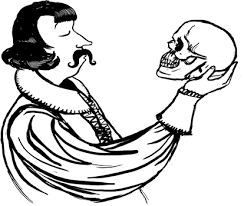
Spoiler: the answer is “to code”. The world is being digitized and shows no signs of slowing down. As data analysis and computations become more prominent in academia, it seems inevitable for scholars to engage with coding and computation of some form. In the field of Digital Humanities, students and scholars frequently engage with and contribute to the digitized world. Computer science is a sizeable slice of this interdisciplinary field. It is important that students studying the Digital Humanities get a taste of it.
Computers should not be black boxes but rather understood as engines for creating powerful and persuasive models of the world around us.
Matthew Kirschenbaum – University of Maryland
Scholars in the humanities have been trying to explain the world around us, and within us, for a long time. Learning to code unlocks a vast potential of opportunities for digital humanists to do so. “Coding” is an ambiguous, (and intimidating) term. I do not argue that students should become fluent or even proficient in C++ or R; they should really gain a basic understanding of how programming languages functions and can create the things they see on any technological device. This is a skill that allows people to engage more intelligently with the online world. It is easier to understand computer science related concepts which is helpful for collaboration.
As a computer science major, I understand the potential that basic computer science knowledge can unlock. During my senior year of high school, I took my first computer science class where I learned Java. The first few weeks of that class was difficult; even beginning to grasp the idea of print statements was difficult.
System.out.println("Hello World!")I was shocked, and close to furious, of all of the syntax that I was going to have to memorize. But it slowly got easier. I quickly learned that learning to code is more about the problem solving than it is the coding itself. Of course, you need to know the syntax to write functioning programs, but the process of figuring out how to write it involves critical thinking. I continued my computer science journey here at Carleton College, where I have learned to implement data structures using Python, manage and access data using SQL, and create an interactive website by a collaboration of various languages. Learning new programming languages gets easier with experience.
These skills have shaped the way I view the online world. With each DH project that I have interacted with in this class, I was able to think generally about how the creators built their ideas and presented data. The management and processing of data does not appear foreign; I’ll often interact with these sites and think about how they did it. How did they query the data? How did they create this certain interactive function? Students gain a broader perspective of and appreciation for various projects and the ways it is impacted by coding.
I absolutely agree that coding is not about syntax but problem-solving skills. Coding essentially creates a set of rules that can help you better tackle a question. I think what is more important is how codes work in different situations and what is the logic behind each line of code.
Agreed. We should definitely encourage the logic we can learn from coding